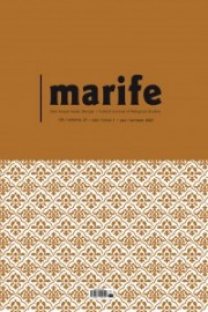Klandan İmparatorluğa Cengiz Han’ın, Soyu, Yetiştiği Ortam Çocukluğu Kişiliği ve Yasası -Psikotarih Bağlamında Bir Deneme
Psikotarih, tarihle psikolojiyi buluşturan yeni bir disiplindir. Hattâ tarihi şahsiyetlerin psikolojisi olarak tanımlanabilir. Psikotarih ülkemizde henüz pek bilinmemektedir. Bu bilim dalı, insanın psikolojik motivasyonlarını anlamak için psikanalitik yaklaşımları kullanmaya çalışmaktadır. Acaba gerçekten psikanalistler kaynakların ve tarihçilerin sağladığı veriler ışığında tarihi şahsiyetlerin psikolojilerini çözmeyi başarabilirler mi? Meselâ Cengiz Han’la (1162?-1227) soyu, yetiştiği ortam, kişiliği ve yasası arasında bir ilgi kurmak mümkün müdür? İşte bu makale bu soruların cevaplarına ulaşmayı denemektedir. Bu bağlamda, Temucin’in klandan imparatorluğa geçiş sürecinde hayatının ilk evrelerinde yaşadığı olayların ileriki hayatındaki izleri takip edilmiş ve şaşırtıcı bazı etkileşimlere dikkat çekilmekle yetinilmiştir
Anahtar Kelimeler:
Psikotarih, Cengiz Han, Moğollar, Cengiz Yasası, Moğol İmparatorluğu
From Clan To Empire Chinggis Khan’s Origin And Ancestors, His Geographical Environment,Childhood, Personality And Yasa (A Psychohistorical Trial)
Psychohistory is a new discipline that combines psychology with history. It can even be described as the psychology of historical figures. Psychohistory, is hasn’t been known much yet in our country. This branch of science, tries to use of the psychoanalytic ap- proaches for understanding the human's psychological motivation. I wonder whether psychoanalysts can manage to solve the psychology of the historical figures in the light of the data provided by historians and historical resources. This study focuses on an impor- tant figure, Temucin [later Chinggis Khan (1162?-1227)] and his origin of family and an- cestors, his growth neighborhood and geographical environment, childhood, personality and his law (Yasa), the famous. Is there any relation between Chinngis Khan and them? In this sense, it has been tried to highlight the tracks of Temucin’s early experiences during his childhood and adulthood and influences of these experiences to his decisions and be- haviors when he became the Khan of Mongols (King of them). The purpose of this article is to reach the answers of these questions
Keywords:
Psychohistory, Chinggis Khan, Mongols, The Yasa of Chinggis, Mongol Empire.,
- Yayın Aralığı: Yılda 2 Sayı
- Başlangıç: 31.05.2001
- Yayıncı: Yediveren Kitap
Sayıdaki Diğer Makaleler
Şuarâ Sûresi 153. ve 185. Ayetlerdeki Müsehharîn Kelimesinin Tefsirinde Görülen Anlam Farklılaşması
Sovyet Yönetiminin Sekülerleştirme Politikası ve Günümüz Orta Asyasına Etkileri
Elyor KARİMOV, Necmeddin GÜNEY
İbn Sinân El-Hafâcî’ye Göre Fesâhat
Şuarâ Sûresi 153. ve 185. Ayetlerdeki Müsehharîn Kelimesinin Tefsirinde Görülen Anlam Farklılaşması
İslami Kozmoloji ve Kur’ani Yorum
Nasr Hâmid Ebû ZEYD, Numan KONAKLI
Osmanlılar’ın Son Döneminde Makâlât ve Fırak Geleneği: Şeyh Abdurrahman Aktepî Örneği
